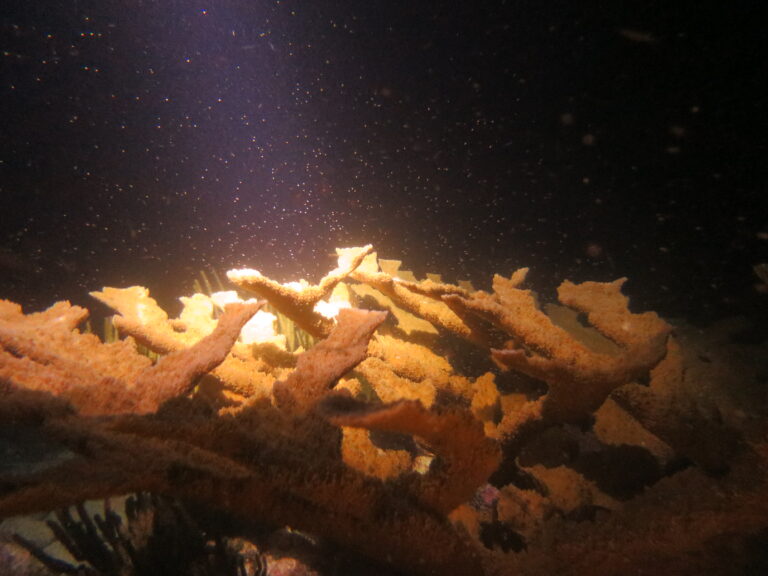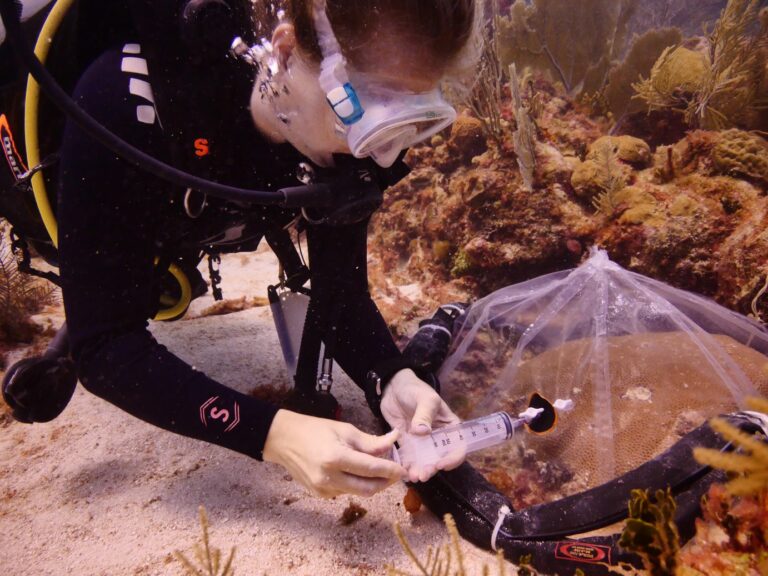Deoxygenation is emerging as a critical threat to tropical coral reefs. Hypoxic events, when low oxygen levels drop below the critical threshold to sustain life, have been detected on tropical coral reefs in recent years, and in some cases cause mass mortality of corals and other reef organisms. Declining dissolved oxygen...
The key reef building corals of the Caribbean reproduce through synchronized mass spawning events. In the case of Acropora corals, gametes (sperm and eggs) are released from adult colonies, fertilisation takes place in the water column, and larval settlement takes place 3-10 days later. Acropora spawning only happens on a...
Tracking Calcification: a new method for measuring reef restoration ‘success’ The urgency of the coral reef crisis calls for improved evaluation metrics and assessment techniques such that coral restoration efforts can be refined to increase efficacy and successful outcomes. There is a critical need to accurately track reef restoration progress...
Reef-building corals are animals which rely upon symbiotic micro-algae living within their tissues to provide energy through photosynthesis. Through the process of calcification, scleractinian (stony) corals deposit calcium carbonate skeleton. Coral reefs are built from the accumulation of thousands of years of this coral skeletal material. It is this process...


